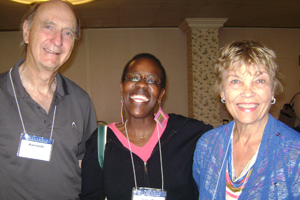Latest News Archive
Please select Category, Year, and then Month to display items
12 October 2020
|
Story Dr Cindé Greyling
|
Photo Supplied
 Exercise and nutrition can work wonders for your mental health – you don’t even have to ‘feel like’ or ‘enjoy’ moving around and eating well for it to work – it does its thing anyway.
Exercise and nutrition can work wonders for your mental health – you don’t even have to ‘feel like’ or ‘enjoy’ moving around and eating well for it to work – it does its thing anyway.
Nowadays, people talk about mental health like it is the common cold – which is good! But do you know what it really means? Being mentally healthy does not only refer to the absence of a mental illness but includes your emotional and social well-being. One would almost want to add physical well-being too, since a healthy body does indeed support a healthy mind. However, since so many people consider themselves ‘mental health experts’, some myths have been sold as truths.
Myth #1 – You are doomed.
Nope. Never. You are never doomed. There is always help. Mental-health therapies range from self-help, talk therapy, medication, to hospitalisation in some cases. Somewhere on this spectrum of treatments, there will be something that works for you. But you must be willing to get the help and do the work. For starters, exercise and nutrition can work wonders – you do not even have to ‘feel like’ or ‘enjoy’ moving around and eating well for it to work – it does its thing anyway.
Myth #2 – It won’t affect you.
It may. Research suggests that one in five people may suffer from a mental illness at some point in their lives. Being well now does not mean that it will stay that way. Biological and environmental factors both impact your mental health. Hopefully not, but at some point, you may experience an event that affects your mental health.
To remain integrated in a community is always beneficial
for anyone suffering from a mental or physical condition.
Myth #3 – Someone struggling with mental health must be left alone.
Hardly! To remain integrated in a community is always beneficial for anyone suffering from a mental or physical condition. You do not need to fix them, but to remain a friend. Continue to invite them, even if they decline. Do not judge, and do not try to understand. Just stay around.
Go and be kind to yourself, and to those around you.
The practice of mourning loss
2014-06-11

Prof Kenneth Gergen, Dr Jennifer Githaiga and Prof Mary Gergen
Photo: Supplied |
Among international delegates from over 60 nations and more than 1 300 participants, Dr Jennifer Githaiga presented her paper on the practice of mourning – the African way.
Her paper questioned the language used in psychology to ‘pathologise’ African people’s mourning practices. Drawing from her doctoral research, she explained the role of maintaining close bonds with family members after they pass away. Rather than severing these bonds, Dr Githaiga argued that continued attachment beyond death plays a significant role in healing the trauma of loss.
Dr Githaiga’s entitled her paper ‘The “pathology” of post-bereavement bonds: cultural positioning in qualitative inquiry.’ She presented this at the Tenth International Congress of Qualitative Inquiry (ICQI). A conference that has become one of the most important events on the calendar of qualitative researchers across the globe. The event was hosted at the University of Illinois in Urbana-Champaign from 21 - 24 May 2014. The theme of the conference this year was ‘Qualitative Inquiry and the Politics of Research’.
Dr Githaiga is currently a postdoctoral fellow at Trauma, Forgiveness and Reconciliation Studies at the UFS. During the congress, she also found herself in the role as ambassador to Kovsies. Not only did she rub shoulders with highly-regarded Profs Kenneth and Mary Gergen, but also spoke with leading scholars in the field of qualitative research interested in our university.